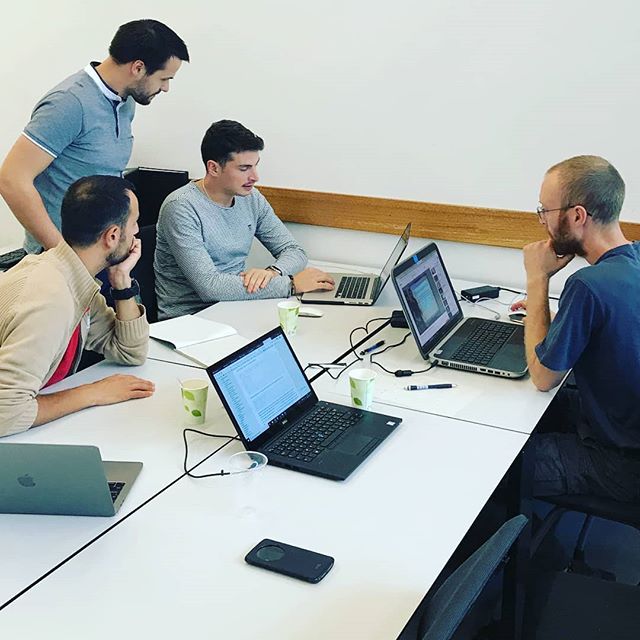This week I attended the 2nd Learning and Student Analytics Conference http://lsac2018.org taking place at the Universiteit van Amsterdam. The conference started to group the researchers and practitioners in Learning Analytics in The Netherlands. In practice this year it turned out attracting people from all over Europe. For this reason, in 2019 LSAC becomes a European Learning Analytics conference, which will be hosted in Nancy, France at the Loria lab.
I found the discussion quite relevant this year. Starting from the first keynote Tim McKay from University of Michigan which touched upon interesting points, one of them being unfair grading (e.g. gender performance in science/math/STEM subjects). How to improve grading at the university to reduce bias and discriminations? A solution to this problem was proposed: adapt the learning environments so that learners have different perceptions and different performances. Adaptive learning would allow students to structure their learning and being assessed differently.
How to treat learners as individual and not as averages? There is no clear answer yet says McKey. One solution is adapt learning environment so learners have different perception and performance. However, analytics and statistics are based on generalisations so issue is real.
— Daniele Di Mitri ⏩️🦣 (@dimstudi0) October 22, 2018
Another hot topic nowadays is the privacy dilemma introduced by the GDPR. The dilemma is the following: if we need to justify every time why we collect educational data, we need to have clear research questions before-hand, this would inhibit us to explore new ways how to improve education itself. A reasonable position was expressed by Maren Scheffel: "Universities and educational institutions have the right and the obligation to improve their education, for this reason, they should not ask every time permission to use data to do this qualitative research".
Maren Scheffel (OUNL): Educational institutions have the right to use the data for improving the learning experience of their students. The "consent hype" should not put research to a dead end. @m_a_s_c pic.twitter.com/bmvbRKa7Tp
— Daniele Di Mitri ⏩️🦣 (@dimstudi0) October 22, 2018
The second keynote Ian Dolphin from Apereo focused on the future prospects of the data-driven society. His main message is that everyone operating in this field should carry the ethical questions along. This would prevent the dystopian future in which learning out of human control and is controlled by data.
Dystopian future evoked by @iandolphin24 in his keynote today reminds us our mission as #edtech researchers. Control technology, before technology controls us. #lsac2018 #learninganalytics pic.twitter.com/saJj4JWTUp
— Daniele Di Mitri ⏩️🦣 (@dimstudi0) October 23, 2018
LSAC Hackathon
As a follow-up to the conference, the LSAC Hackathon took place at the Amsterdam Business school. The Hackathon gathered experts in LA from different schools. I was asked to bring the Multimodal challenge and I prepared a tutorial concerning the analysis of the CPR multimodal datasets. I ended up in a group of very smart and motivated people which gave me quite some interesting feedback on feature extraction from multiple time-series.
We just kicked off the #lsac2018 hackathon with @amberg1. I'm looking forward working on topics like #multimodal data, #vacancymining and #riskmanagement in the area of #learninganalytics pic.twitter.com/H7NaD515XA
— Gábor Kismihók (@kismihok) October 24, 2018
The results of the LSAC Hackathon will be fed into the LAK Hackathon 2019 to take place before the LAK conference in Arizona in March 2019.
@dimstudi0 Presents at hackaton Learning analytics with multimodal data 🙂 #lsac2018 Important work for future of multimodal forms of education pic.twitter.com/pJ98rC602i
— FleurUni (@Fleur_Uni) October 24, 2018


